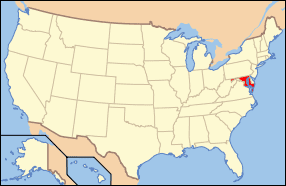Featured, International Students
How to Build Your Personal Brand as an International Student
Editorial Staff

As an international student, you are on a unique journey that offers not only academic growth but also a remarkable opportunity to build your personal brand. In a globalized world, personal branding can make a significant difference in your academic success and future career prospects. In this article, we’ll explore the essential steps and strategies to help you establish a strong personal brand as an international student.
Understanding Personal Branding
Before we dive into the practical steps, let’s clarify what personal branding means in your context. Personal branding is the art of showcasing your unique identity, skills, and experiences in a way that makes you stand out and leaves a lasting impression. For international students, it’s about defining who you are and what you offer to the academic and professional communities.
Importance of Personal Branding for International Students
Personal branding holds significant importance for international students for several reasons:
- To stand out from the competition: The job market is increasingly competitive, and international students often face an uphill battle against domestic students. Personal branding can help international students differentiate themselves from the competition by highlighting their unique skills, experiences, and cultural background.
- To build relationships with potential employers: Personal branding can help international students build relationships with potential employers by demonstrating their skills, knowledge, and passion for their field. When employers can see what you have to offer, they are more likely to be interested in hiring you.
- To increase visibility: Personal branding can help international students increase their visibility in the job market by making them more discoverable online. When potential employers can easily find you online, they are more likely to consider you for a job.
- To gain credibility: Personal branding can help international students gain credibility by establishing themselves as experts in their field. When you share your knowledge and expertise online, you build trust with potential employers and other stakeholders.
- To achieve your career goals: Personal branding can help you achieve your career goals by providing you with a roadmap to success. When you know what you want to achieve and how you want to be perceived, you can make better decisions about your career path.
Key Elements of Personal Branding
The key elements of personal branding are:
- Clarity: Know who you are and what you stand for. What are your unique skills and experiences? What are your passions? What do you want to achieve in your career?
- Consistency: Your personal brand should be consistent across all channels, including your website, social media, and resume. This will help people to remember you and your brand.
- Authenticity: Be yourself and let your unique personality shine through. People can spot a fake a mile away.
- Relevance: Your personal brand should be relevant to your target audience. What are their needs and interests? What can you offer them that they will value?
- Engagement: Get people involved with your personal brand. Share your content, participate in online conversations, and attend industry events.
- Actionability: Your personal brand should be actionable. What do you want people to do after they learn about you? Visit your website? Connect with you on social media? Hire you?
How to Build Your Personal Brand as an International Student
Building a personal brand as an international student can be a powerful way to stand out, network, and create opportunities for yourself both during your studies and after graduation. Here are some steps to help you build your personal brand:
- Define Your Unique Value Proposition (UVP): Start by identifying what sets you apart from other international students. What skills, experiences, or qualities make you unique? Your UVP should highlight your strengths, interests, and passions.
- Set Clear Goals: Determine what you want to achieve through personal branding. Are you looking to secure an internship, make new connections, or establish yourself in a specific industry? Having clear goals will help you tailor your efforts.
- Build an Online Presence:
- LinkedIn: Create or update your LinkedIn profile with a professional photo, a compelling headline, and a well-written summary. Connect with professionals in your field and engage in relevant discussions.
- Personal Website/Blog: Consider creating a personal website or blog to showcase your work, projects, and thoughts. This can help you demonstrate your expertise and interests.
- Social Media: Use platforms like Twitter, Instagram, or YouTube to share content related to your field or interests. Ensure your posts are professional and aligned with your brand.
- Content Creation: Share valuable content related to your field of study or interests. This could include articles, videos, podcasts, or even insightful social media posts. Consistency is key; regularly update your platforms with high-quality content.
- Networking: Attend networking events, both in-person and online, to connect with professionals, professors, and peers in your industry. Building relationships can lead to mentorship opportunities, internships, or job referrals.
- Leverage University Resources: Many universities offer career services, workshops, and networking events. Take advantage of these resources to enhance your skills and expand your network.
- Cultural Exchange: Embrace your international background as part of your brand. Share your cultural experiences, and consider how they can be an asset in your chosen field, such as by showcasing your ability to work in diverse teams.
- Internships and Projects: Participate in internships, volunteer work, or research projects that align with your career goals. These experiences will not only build your skills but also provide material to showcase in your personal branding efforts.
- Seek Feedback: Ask for feedback from professors, mentors, or peers on your work, projects, and online presence. Constructive criticism can help you improve and refine your brand.
- Be Authentic: Your personal brand should reflect your true self. Authenticity is key to building trust with your audience, whether it’s potential employers, collaborators, or mentors.
- Continuous Learning: Stay updated with the latest trends and developments in your field. Show your commitment to learning and growth through online courses, certifications, or participation in industry events.
- Monitor and Adjust: Regularly assess the effectiveness of your personal branding efforts. Use analytics and feedback to make necessary adjustments and improvements.
Remember that personal branding is a long-term endeavor. Building a strong brand takes time and consistent effort, so be patient and stay committed to your goals. Over time, a well-crafted personal brand can open doors and help you achieve success as an international student.
Furthermore, if you wish to gain deeper insights into studying abroad, don’t hesitate to reach out to a team of study abroad consultants in Delhi at Transglobal Overseas. They are dedicated to addressing all your queries, providing comprehensive guidance, and assisting you throughout the entire application process.
Effective Networking Strategies
Here are some effective networking strategies:
- Be prepared. Before you start networking, take some time to think about what you want to achieve. What are your goals? What kind of people do you want to meet? What information do you want to learn?
- Be yourself. Don’t try to be someone you’re not. People can spot a fake a mile away. Be yourself and let your unique personality shine through.
- Be genuine. Be interested in other people and what they have to say. Ask questions and listen attentively.
- Be helpful. Offer to help people with their goals. This is a great way to build relationships and make a good impression.
- Follow up. After you meet someone, send them a thank-you note or connect with them on social media. This shows that you’re interested in building a relationship.
- Be persistent. Networking takes time and effort. Don’t get discouraged if you don’t see results immediately. Just keep networking and eventually you will start to build relationships that will benefit you.
Conclusion
Building your personal brand as an international student is an ongoing process that can open doors to academic achievements and exciting career opportunities. Remember, your brand is a reflection of your unique identity, skills, and experiences. By following these strategies and staying true to yourself, you can craft a personal brand that sets you apart and helps you achieve your academic and professional goals. Start today, and watch your personal brand flourish on your international student journey.
SEE ALSO: How to Compare Countries, Cities, and Qualifications for Studying Abroad















